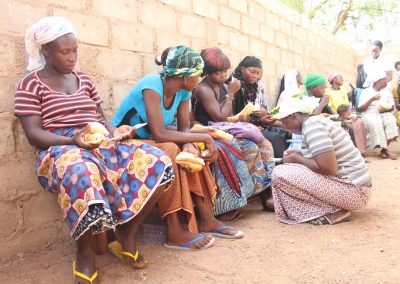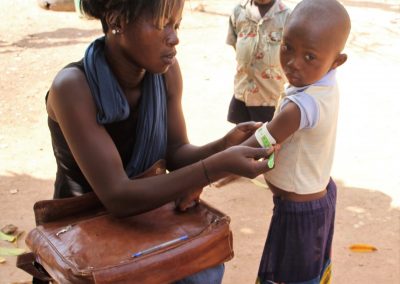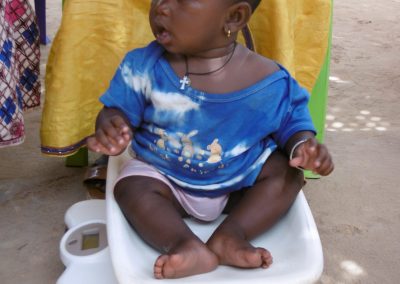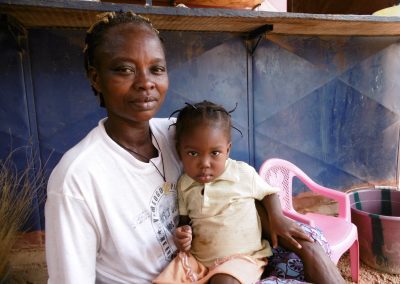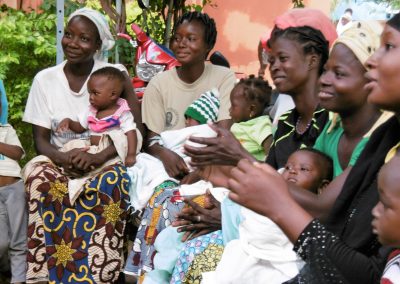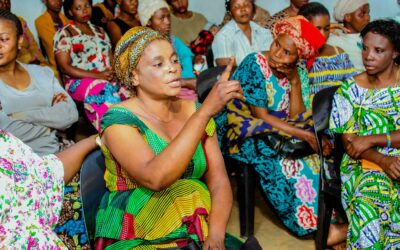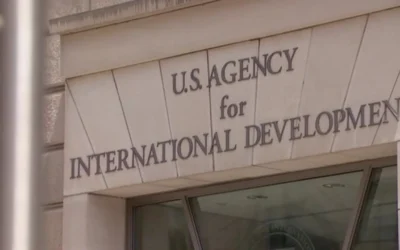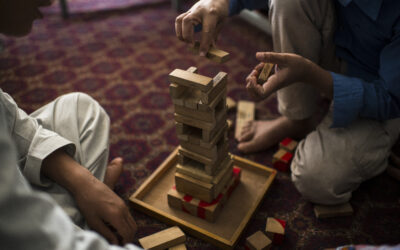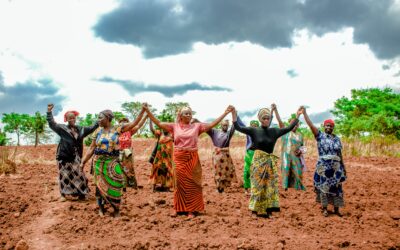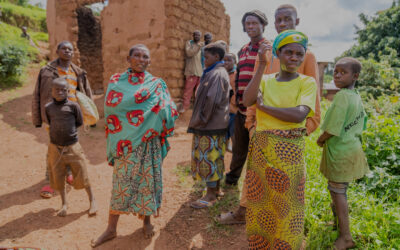When it comes to child health, mothers make it happen
Mothers in America and mothers in Burkina Faso may live on opposite ends of the globe, but the experience of motherhood connects them in a way few other life experiences can. No matter where you live, all mothers care deeply for their children and will do anything to support their health and well-being.
Take Mrs. Sakande, for example. She’s a hard working mother of one, living in Burkina Faso, West Africa. Like all mothers, she wanted to provide the best health care she could for her daughter, Sakinatou, but in Burkina Faso, even basic health care costs can be out of reach for most moms.
So when Mrs. Sakande heard from someone in the neighborhood about an affordable home-based health program through ODW’s partner Djantoli, she didn’t hesitate to learn more about the program and get her daughter enrolled. The program enabled Sakinatou to get a health check-up by one of Djantoli’s community health agents. The agent checked her weight and made some recommendations to Mrs. Sakande on how to better provide Sakinatou with a nutritious diet. Mrs. Sakande’s story reminds us that no matter the challenges, mother’s do whatever it takes to make sure their children receive the best care possible.
…no matter the challenges, mother’s do whatever it takes to make sure their children receive the best care possible…
On Mother’s Day, we celebrate all moms and thank them for their wisdom, sacrifice, and care. The life of a mother is never easy, and her desire to give her children the best life possible is the same in all places. Providing good food for her children, keeping them healthy, and making sure they have a quality education are all goals that mothers hope to achieve. Sadly, mothers in less developed countries often have extra challenges to overcome when bringing lives into the world.
Moms experiencing poverty typically have less access to information on pregnancy, childbirth, and the postpartum period. They also may live far from health care services. These factors increase their likelihood of complications during the different stages of motherhood. 99% of maternal deaths occur in less developed countries. This can be easily prevented through the presence of skilled birth attendants, community health workers, and well equipped health centers. Providing more healthcare professionals in poor communities with little access to health care, means moms can become educated on birth preparedness, child care, nutrition, and preventing illness.
One Day’s Wages has partnered with many incredible organizations that use innovative and proven strategies to tackle the most pervasive problems that mother’s face. They’ve partnered through technology interventions to reach women in neonatal emergencies with One Heart World-Wide. They also partnered with Primeros Pasos to provide medical and nutritional treatment, as well as educational classes to mothers and their children in Guatemala. Maternal and child health has always been one of their highest priorities, as they recognize the important role mothers play in creating healthy futures for our children.
Providing women with access to family health care has a spillover effect that empowers moms, their families, and even their entire communities. Mrs. Sanou, another mother in Burkina Faso, became an ambassador in her community for Djantoli and their home-based health program. She wanted to help empower more moms like herself, so she hosted a gathering of her neighbors at her home. After she shared her experience about the program, 12 more moms signed up.
One Day’s Wages is partnering with Djantoli again this year for Mother’s Day. Thank mothers across the world by contributing to this latest maternal and child health project in Burkina Faso. Consider making a gift in your mother’s name today.
Jessinia Ruff is a One Day’s Wages blog contributor, and student at Seattle Pacific University.
More stories of impact
Turning Challenges into Opportunities: Masoka’s Journey of Empowerment
Masoka’s hands are stained with the rich soil of the land she now calls home. A 37-year-old mother of four, she arrived at Dzaleka Refugee Camp in Malawi after fleeing the conflict in her home country, the Democratic Republic of the Congo. The future felt uncertain,...
What Was USAID, and What Now?
USAID has made news headlines constantly over the last few months. You may find yourself wondering: what is USAID, and is One Day’s Wages affected by its dismantling? As a global development organization, we at ODW care deeply about the people who depend on foreign...
Growing Love, One Drop at a Time: How One Woman Turned Her Birthday into a Gift of Clean Water
When Sara, a graphic designer and mother from Oregon, started thinking about how to celebrate her birthday, she decided to do something different—something meaningful. With a belief that “we are all connected… with the power to affect change by how we live our own...
Bridging the Gap: An Update on Our Response to the Funding Freeze
In Matoh, Cameroon, a mother prepares to give birth. Life in a conflict zone means getting to a safe facility with trained health workers is nearly impossible. Fortunately, a new mobile clinic begins offering prenatal care and transportation to a birthing clinic,...
Why We Invest in Women
There’s an old Ghanaian proverb: “If you educate a man, you educate an individual. But if you educate a woman, you educate a family.” On this International Women’s Day, we celebrate the power of women—how their resilience, leadership, and determination transform not...
The Case for Social Inclusion
Today is the World Day of Social Justice! Never heard of it? Never fear, we’re here to fill you in. In 2009, the United Nations General Assembly launched the World Day of Social Justice to recognize our on-going need for inclusive economic development and decent work...
LEARN
Leadership
Transparency
Read the Latest
Contact Us
COLLABORATE
Faith Groups
Schools
Businesses
Get Involved
One Day’s Wages exists to alleviate extreme poverty by investing in, amplifying, and coming alongside locally led organizations in underserved communities.
©2025 One Day's Wages is a registered 501(c)(3) organization | Tax ID #26-2566653 | Privacy policy | Terms of use
P.O. BOX 17575 Seattle, WA 98127 | Contact us

